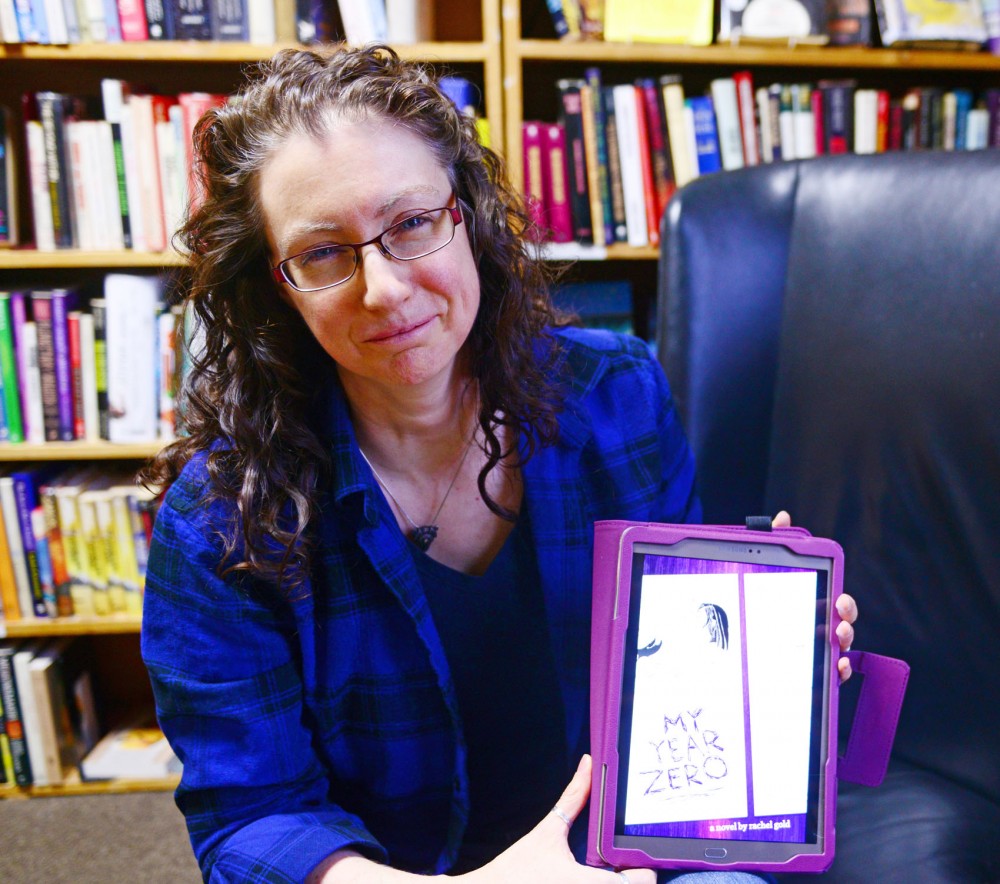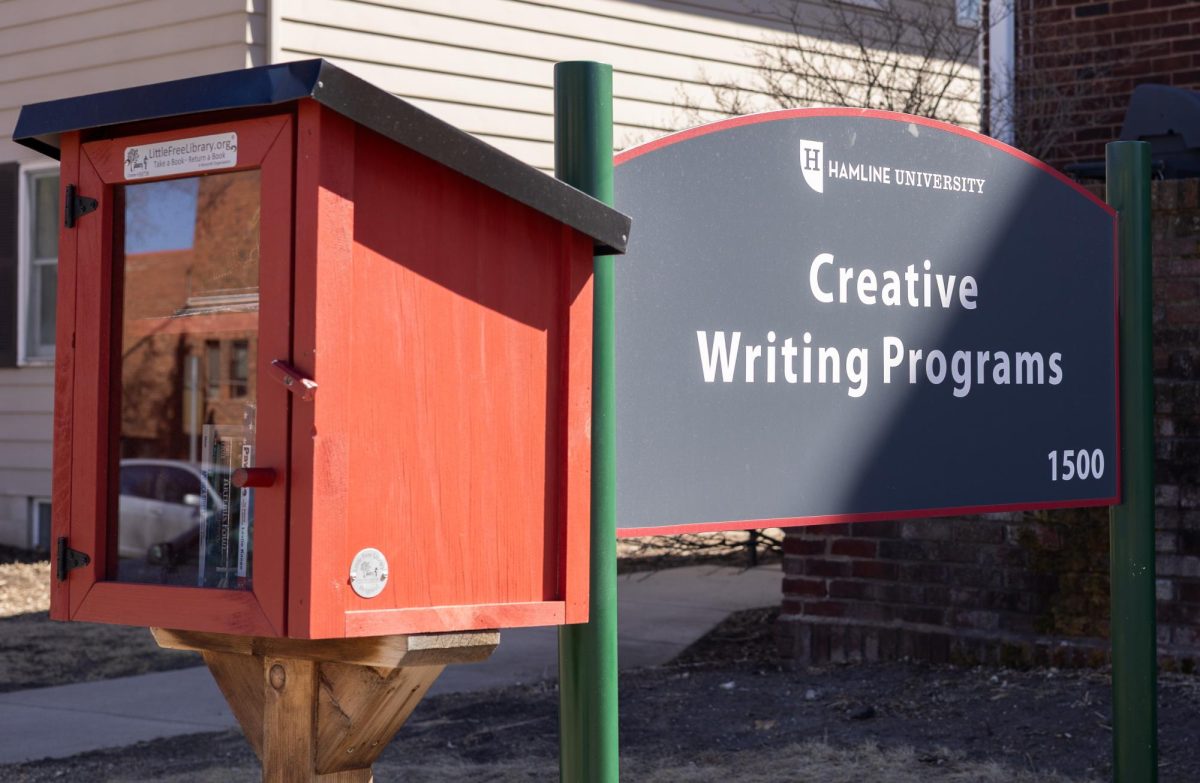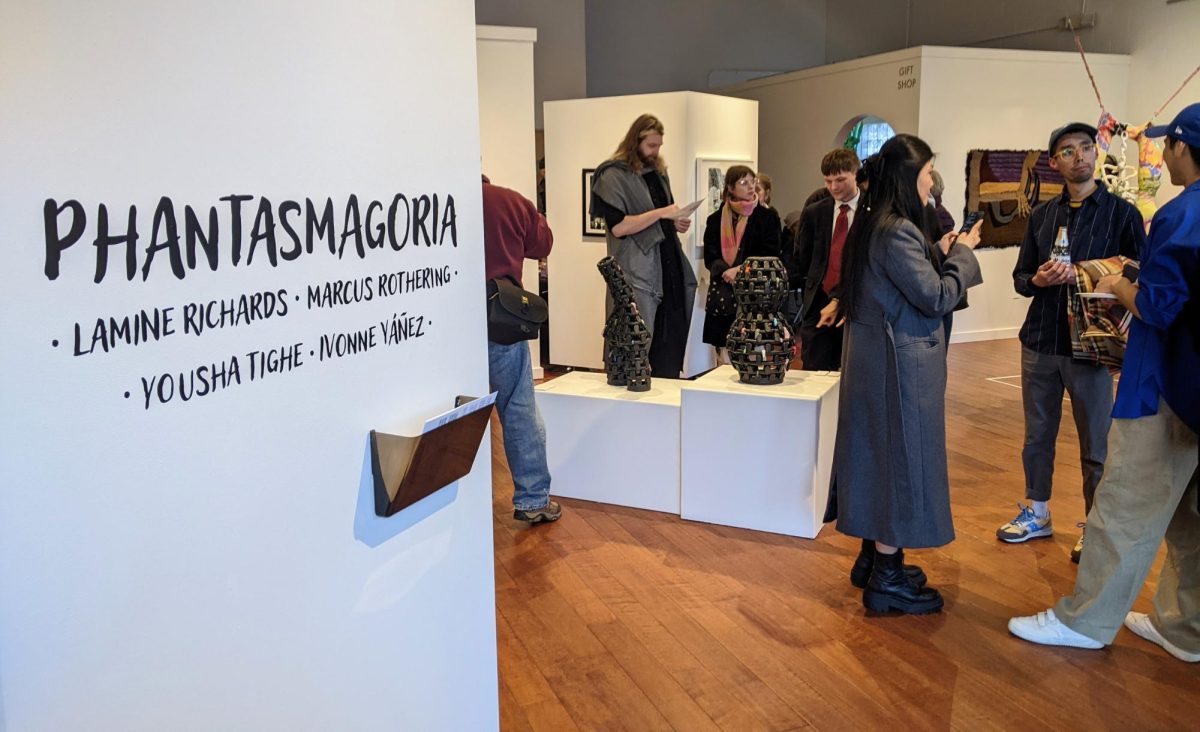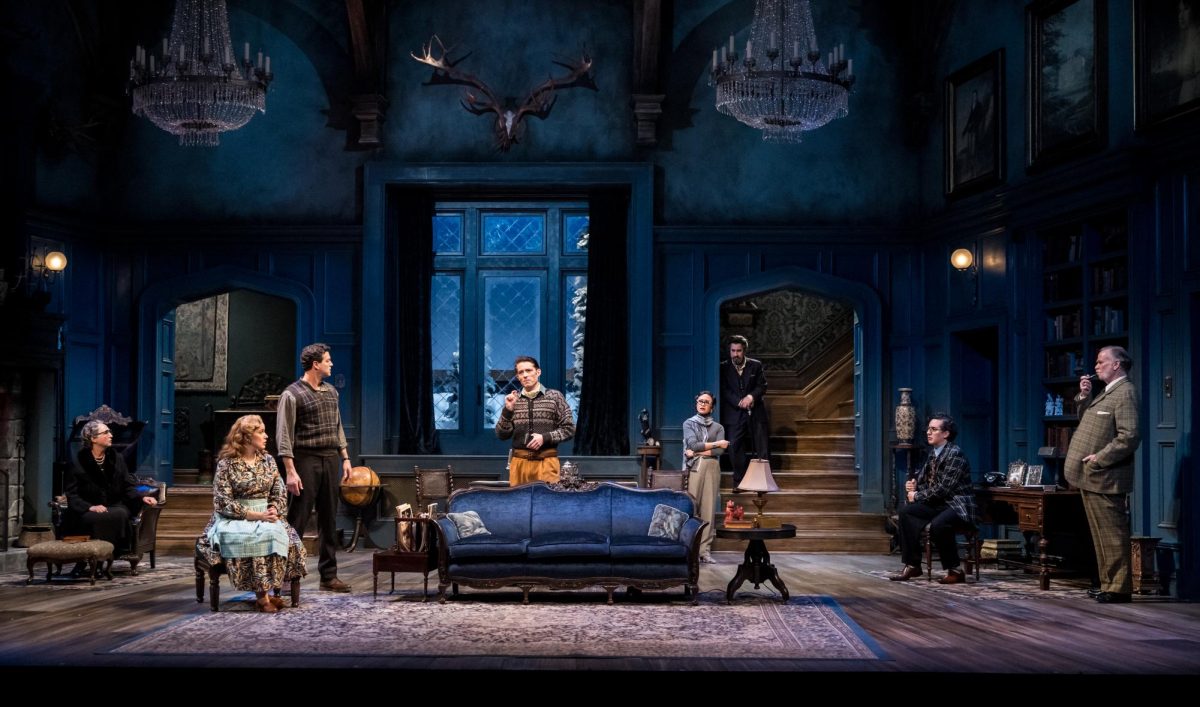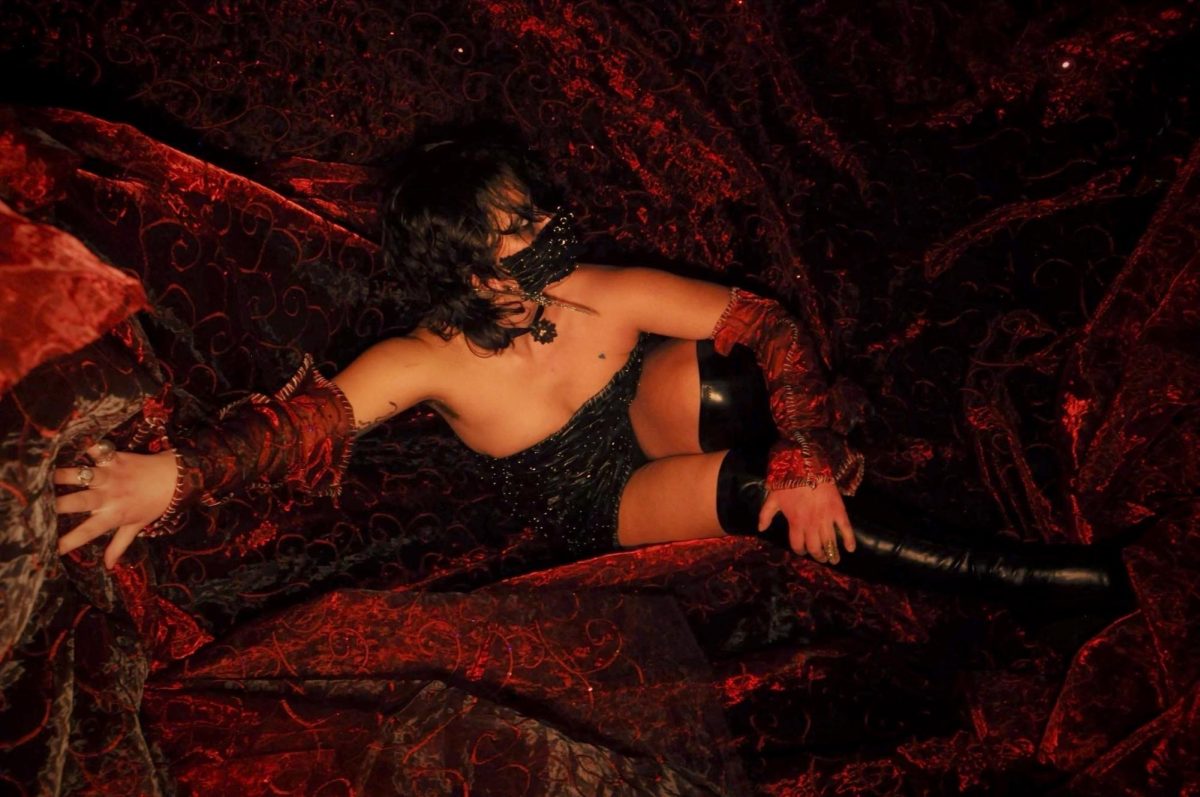Even with today’s infinite means of communication, it can be difficult for an individual to find their voice. It’s harder yet to be heard — especially for frequently marginalized populations.
Intermedia Arts’ long-running Queer Voices series combats that silencing. It provides a platform for
LGBT community members to share their experiences and gives people the opportunity to connect with others. Tuesday marks this year’s final reading in the series, but curators John Medeiros and Andrea Jenkins are regularly looking for new writers.
“We don’t just say, ‘Here’s a microphone. Here’s a stage. Serenade us with your words,’ ” Medeiros said. “We try to foster the artist in people. … But the most important part is after the readings; we have a dialogue.”
Tuesday night, local author Michael Kiesow Moore will read from his first published collection of poems, “What to Pray For,” which was released earlier this year, as well as some new poems. Moore has worked within the LGBT community since he was a teenager, and the Queer Voices series gives him the chance to blend his love of writing with his passion for the LGBT community.
“Many of the poems I share tell my own personal story, and when you tell your story, you discover you’re also telling a story that is very parallel to what others have experienced,” Moore said. “Your story becomes the story of others as well.”
Local author Rachel Gold describes the connection made on the Intermedia Arts’ stage as “magical.” Although Gold’s writing isn’t strictly autobiographical, all of her novels draw inspiration from her life and the experiences of people she’s encountered.
Gold will read from her upcoming young adult novel, “My Year Zero,” coming out in spring. Not only does the novel contain characters that cover multiple letters of the LGBT initialism, it also features discussions on geek culture and mental health issues. Gold even hired a bipolar consultant to look over the novel’s character with bipolar disorder.
The novel’s central character also has a sense of self-awareness seldom seen in young adult literature. In many novels with queer protagonists, the lead will “come out” during the course of the novel. But Lauren, the 16-year-old lesbian protagonist at the center of “My Year Zero,” is already out to herself and those around her.
“And she kind of knows what she wants,” Gold said. “Or at least she thinks she knows what she wants, and you don’t see that a lot.”
Gold’s tweaking of young adult literature tropes isn’t anything new. She’s quietly revolutionized the genre for the past several years.
“Occasionally, I get called the queer version of Judy Blume, which delights me,” Gold said.
Her 2012 debut novel “Being Emily” was written after Gold noticed there wasn’t a young adult novel told from the perspective of a transgender girl who showed her struggle but remained optimistic.
“There are just too many YA novels where the trans character gets beat up or sad things happen,” Gold said. “It’s not like sad things don’t happen, but there are too many.”
For Gold, she wants her readers to feel heard, represented and known. Her novels don’t just contain cisgender gay men and lesbian women but individuals who are marginalized or feel disenfranchised for a variety of reasons. She said Queer Voices shares this value of diversity.
“They’re very good at finding a diverse array of voices,” Gold said. “One of the things that makes me really proud of our city is that we not only honor diversity but get really curious and interested about it.”
Queer Voices readings bring together people with differing viewpoints and perspectives delivered in new and creative ways.
“The mission of the reading series really is to create a queer literary community where people can talk about the issues they identify with as queer people,” Medeiros said.
“That’s a dialogue that goes both ways.”
The series doesn’t just feature readers either. In the past, artists have used the space to perform raps and act out short scenes. Others use it as a platform to share stories
they’ve never shared before, he said.
“There are coming out stories, and there are transgender writers who live in a world where people don’t know they’re trans. We try to create a safe space for all the writers to
express themselves in the way they feel they need to,” Medeiros said.
He said there isn’t a need for the writers to explain the meaning of certain words or explain their history.
“At Queer Voices, you’re speaking to an audience that has traveled many of the same roads. It feels like a safe space, where you know you can share your deepest personal story, and it’s to an audience that’s been there,” Moore said. “They’ve lived your history.”


